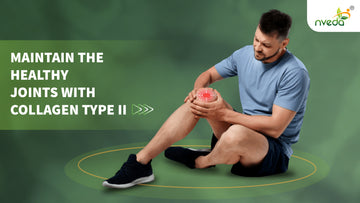Collagen is the most abundant protein in the animal body, playing a crucial role in providing structure and strength to various tissues. Collagen is rich in glycine, proline, hydroxyproline, and other amino acids that are essential for the human body. These amino acids are crucial for the formation of collagen fibers and their functional properties.
Tissues Containing Collagen
Collagen is found in a wide variety of tissues throughout the animal body, with its presence and function tailored to each tissue's specific needs:
-
Skin: Collagen provides skin with its strength, elasticity, and firmness. It is also important in wound healing and maintaining youthful skin. As we age, collagen production declines, leading to wrinkles and sagging.
-
Bones: Collagen forms the framework for bones, providing tensile strength and aiding in the absorption of mechanical stress.
-
Cartilage: Collagen is a major component of cartilage, particularly type II collagen, which provides elasticity and strength to joints, helping them withstand pressure and movement.
-
Teeth: Collagen is involved in the formation of dental pulp and the dentin layer of teeth, contributing to tooth strength.
-
Tendons and Ligaments: Tendons and ligaments are rich in collagen, especially type I collagen. This provides them with the necessary strength and flexibility to connect muscles to bones and stabilize joints.
-
Blood Vessels: Collagen fibers in blood vessel walls help maintain their structure and flexibility, enabling blood vessels to expand and contract with blood flow.
-
Intramuscular Space: Collagen supports muscle structure and function, helping maintain the integrity of the muscle fibers and surrounding tissues.
Benefits of Collagen Type II for Joint Health
-
Improves Joint Mobility and Flexibility: Supplementing with collagen Type II may help improve the flexibility and mobility of joints, especially in individuals experiencing joint stiffness or discomfort due to aging or conditions like osteoarthritis.
-
Reduces Joint Pain and Inflammation: collagen Type II supplements help reduce symptoms of joint pain and inflammation. It is believed to help by supporting the cartilage matrix and reducing the degradation of joint tissues.
-
Helps with Osteoarthritis: In osteoarthritis, the cartilage in joints breaks down over time, leading to pain and limited mobility. Several studies have demonstrated that collagen Type II supplementation can reduce the symptoms of osteoarthritis, including pain and stiffness, and may improve joint function by helping rebuild damaged cartilage.
-
Boosts Collagen Production: Taking collagen Type II supplements may also encourage the body to produce more of its own collagen, enhancing the regeneration of cartilage and improving overall joint health. It may help stimulate the production of proteoglycans and glycosaminoglycans, which are important components of cartilage.
Collagen Type II Supplements for Joint Health
Collagen Type II supplements are usually derived from chicken cartilage, which is a natural and rich source of Type II collagen. These supplements are commonly available in hydrolyzed form (collagen peptides), which makes them easier for the body to absorb and utilize.
Collagen Production and Supplements
As we age, the body’s natural collagen production decreases, leading to the signs of aging and joint problems. Collagen supplements, typically derived from animal sources such as cows, pigs, or fish, have become popular for improving skin health, joint function, and overall well-being. These supplements are typically hydrolyzed (broken down into smaller peptides) to enhance absorption.
Conclusion
Collagen Type II is essential for maintaining the health and integrity of joint cartilage, providing structural support, reducing joint pain and inflammation, and aiding in the repair of damaged cartilage. Supplementing with collagen Type II, particularly in the form of hydrolyzed chicken collagen, can be beneficial for improving joint mobility, preventing cartilage breakdown, and supporting overall joint health, especially for those with conditions like osteoarthritis or those looking to maintain healthy joints as they age.







